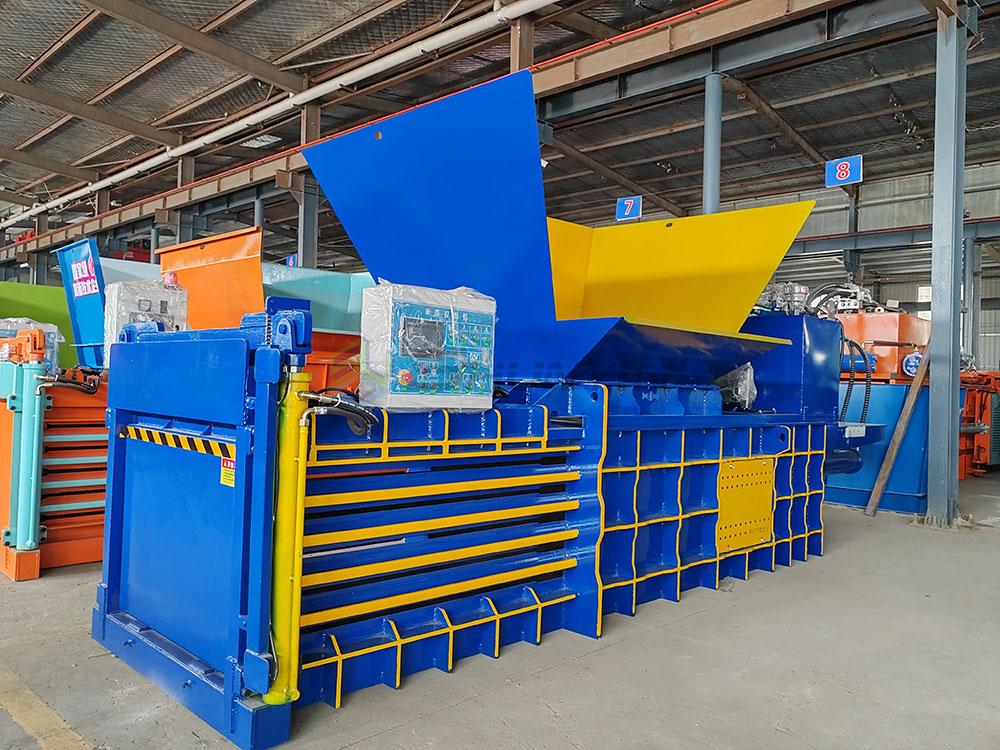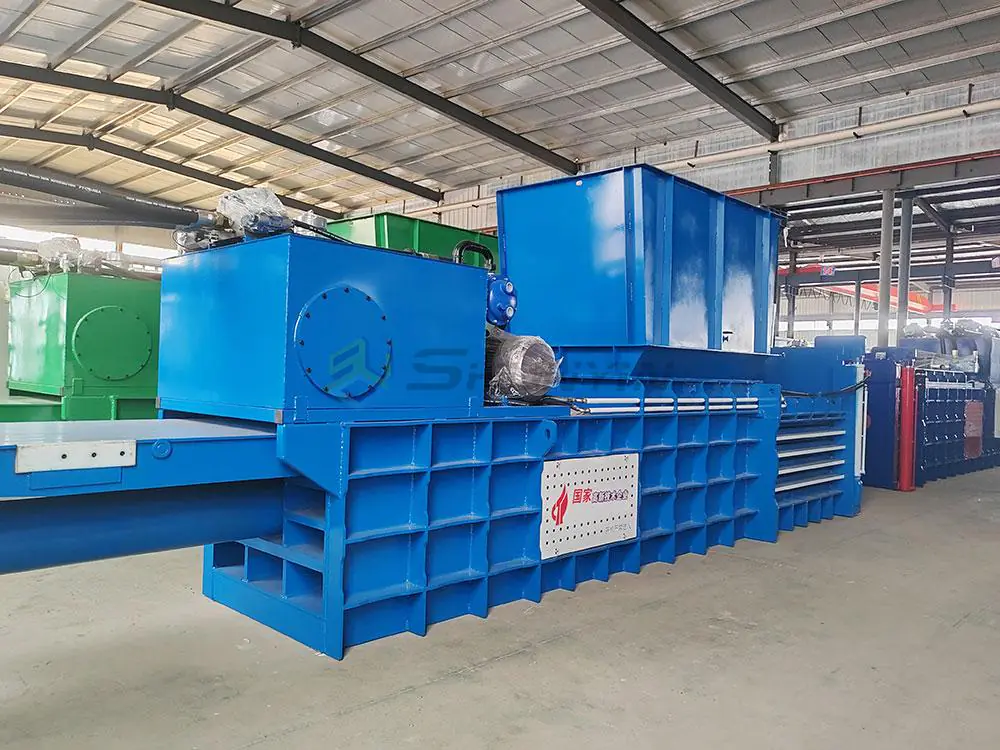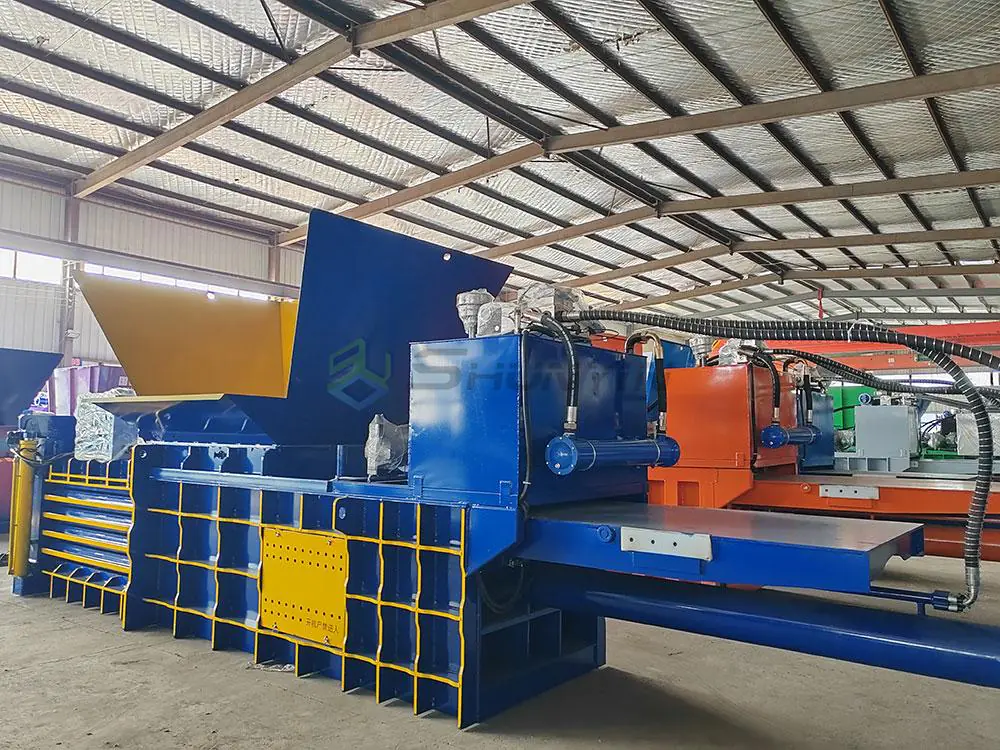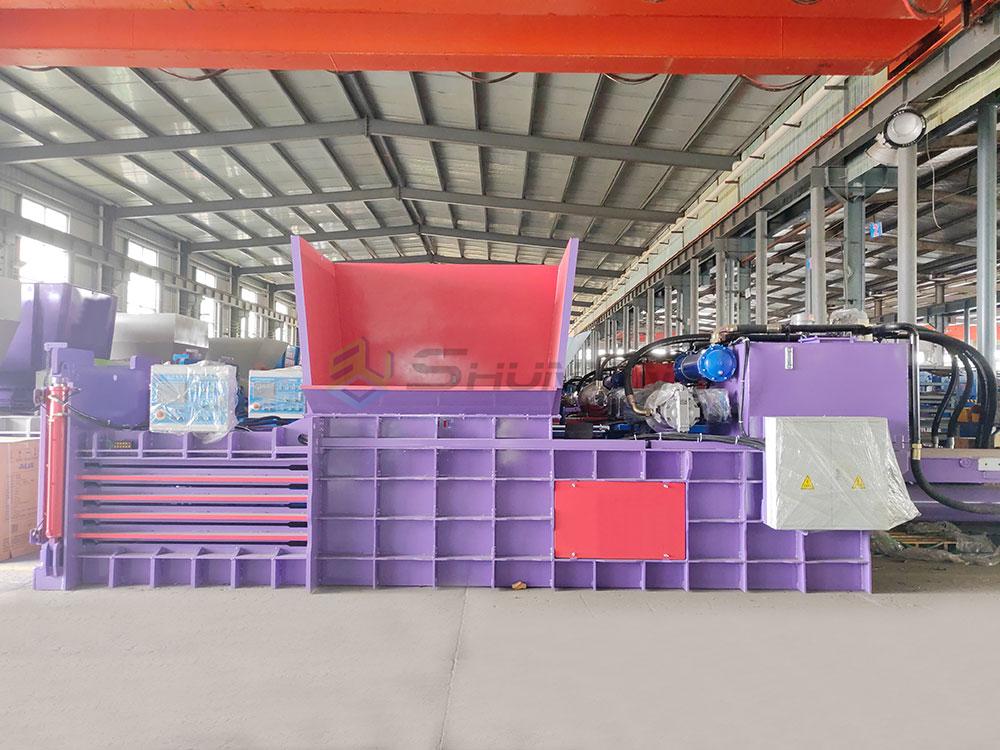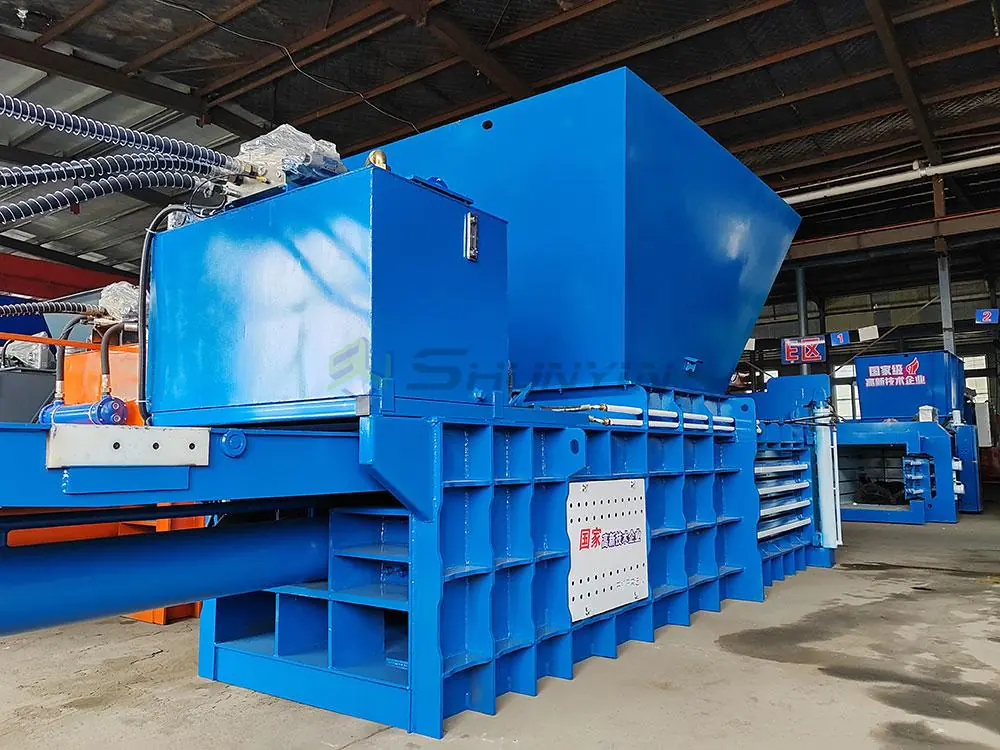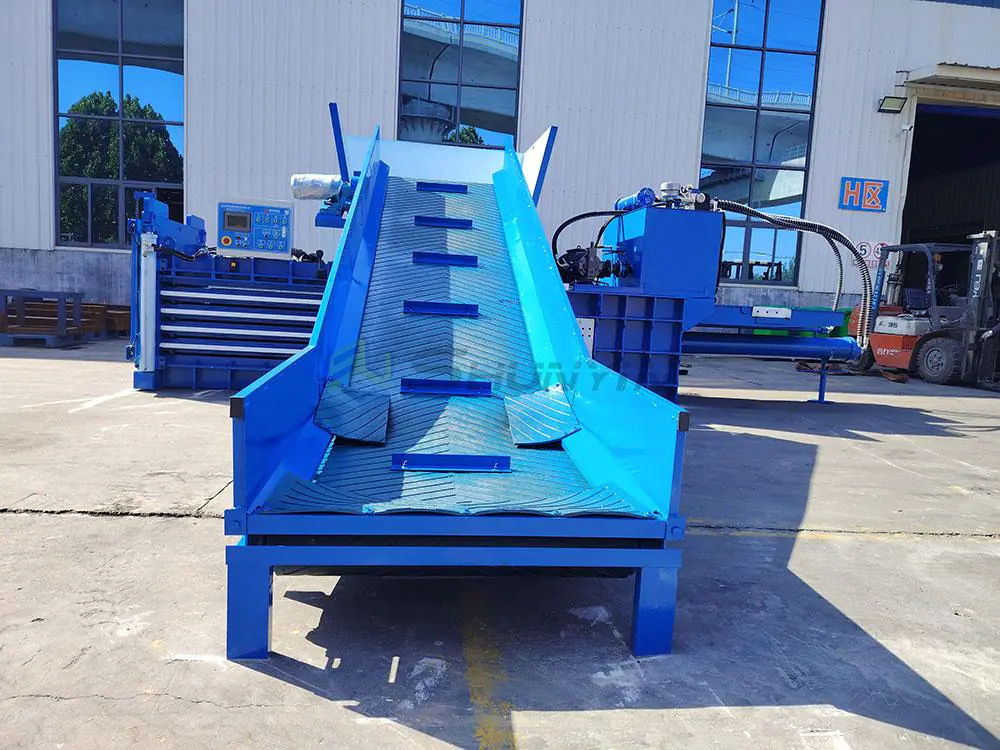
Watching mountains of loose scrap metal topple over? Your competitors stopped losing money on messy storage last month.
Metal recyclers, paper mills, textile factories, agricultural processors, and plastic recyclers boost profits fastest – our clients report 55% average storage cost cuts and 23% higher resale value on compacted materials.
The difference between simply bundling waste and turning it into revenue lies in five key industry applications. Here’s what successful buyers prioritize…
What is the average price of a baler?
Let me share a story I tell every buyer walking into our factory. Last spring, a Midwest scrap yard owner nearly canceled his order when quoted $38,000 for our 60-ton horizontal baler. "My cousin bought one for $12k!" he protested. Two weeks later, he visited our workshop and saw why – the $12k baler broke down compressing steel sheets, while ours handles 8-ton bales daily for 3+ years.
Hydraulic balers range from $8,000 to $120,000, but smart buyers focus on cost-per-ton instead of sticker price. Our entry-level vertical model ($8,500) processes 3 tons daily, while the $68k auto-tie horizontal handles 25 tons.

The Nuts and Bolts Behind Pricing
Three real-world examples explain price variations:
-
Aluminum Can Recycler (Seattle)
- Chose: 20-ton vertical baler ($11,200)
- Capacity: 2 tons/hour
- Saved $7k upfront vs semi-auto model
- Later spent $15k upgrading to auto-tie system
-
Car Part Manufacturer (Nagoya)
- Installed 100-ton horizontal press ($89,500)
- Processes steel scraps 18hrs/day
- ROI achieved in 14 months through scrap sales
-
Municipal Recycling Center (Toronto)
- Opted for dual 50-ton balers ($62k total)
- Processes cardboard/plastic simultaneously
- Reduced processing time by 40%
During factory tours, I demonstrate how our welded steel frames (8% thicker than industry standard) justify the 10-15% price premium. Last month, a Canadian buyer squeezed our frame with a 150-ton hydraulic cylinder – solid as bedrock.
What is the price of an automatic baler?
I learned automation’s true value during our 2018 production crisis. When our main baler jammed, 12 workers scrambled to clear scrap metal. Now with auto-jam detection ($15k upgrade), our system self-corrects in 38 seconds.
Expect to pay $45k-$180k for automatic balers, but consider hidden savings. Our Indonesian client runs three auto-feed systems that replaced 9 workers – labor savings paid for the machines in 16 months.

Automation That Actually Pays Off
Modern balers include features I wish we had 10 years ago:
-
Smart Oil Sensors ($2,500 add-on)
Monitors hydraulic fluid condition
Reduced maintenance costs 27% for Chicago client -
Remote Diagnostics ($4,200/year subscription)
Our techs fixed a Minnesota baler’s valve issue via iPad
Saved $3,800 in onsite service fees -
Bale Weight AI ($7,800 upgrade)
Predicts optimal compression force
Increased scrap value 8% for Dubai recycler
Our factory floor uses a modified $92k auto-baler that’s processed 28,000 bales since 2020. Last maintenance? Just oil changes and a $15 seal replacement. That’s reliability you can bank on.
What is a scrap baler?
Let me show you our "treasure chest" – scrap baler #307. Since 2015, it’s turned:
- 218 tons of aluminum cans → $327,000 revenue
- 94 tons of copper wire → $658,000 payouts
- 1,400 crushed cars → $2.1M in scrap steel
Scrap balers transform waste into compact $$$ blocks. But the real magic? How they convert chaotic piles into uniform bales mills fight over.

Choosing Your Metal-Munching Workhorse
Through trial and error, we’ve identified optimal pairings:
For Urban Scrapyards
Our $28k vertical downstroke baler handles mixed metals efficiently. Singapore client compacts 500kg of aluminum/copper daily into 40cm cubes.
For Auto Dismantlers
80-ton horizontal crusher ($78k) reduces car bodies to 1/4 original size. Japanese buyer ships 30% more units per container.
For Wire Processors
Shear-type balers ($45k+) produce copper bales fetching 12% higher prices. Secret? Clean cuts prevent oxidation at edges.
What is the cost of a car baler?
When Edmonton’s biggest auto recycler visited, they brought a surprise – a rust-eaten pickup truck. "Crush this!" Our 120-ton baler flattened it into a 1.2m pancake in 98 seconds. Deal sealed.
Car balers cost $95k-$250k, but the right model becomes a profit engine. Our $165k mobile unit processes vehicles onsite – Ohio client clears junkyards 3x faster.

Crunching the Numbers Beyond the Press
Let’s break down a real $142k purchase:
- Machine: 130-ton horizontal baler
- Installation: $9,200 (required 600mm concrete pad)
- First Year Ops:
- Processed 1,842 vehicles
- Generated $921,000 scrap revenue
- Maintenance: $3,800 (filters, hoses, sensors)
Key lesson from Toronto client: Mobile units cost more upfront ($210k vs $165k) but eliminate $85/vehicle transport fees. They now crush cars where they sit – saved $142k last year.
Our factory’s current showstopper? A $228k hybrid baler that processes both cars and white goods. First unit shipped to Texas last month – crushes refrigerators and SUVs equally well. Now that’s versatility.
Conclusion
Investing in the right baler isn’t just about the price tag—it’s about the long-term value it brings. From automating processes to boosting scrap revenue, the right machine can transform your operations. My years of experience have shown that quality, reliability, and smart features always pay off. Let’s find the solution that works for you.


